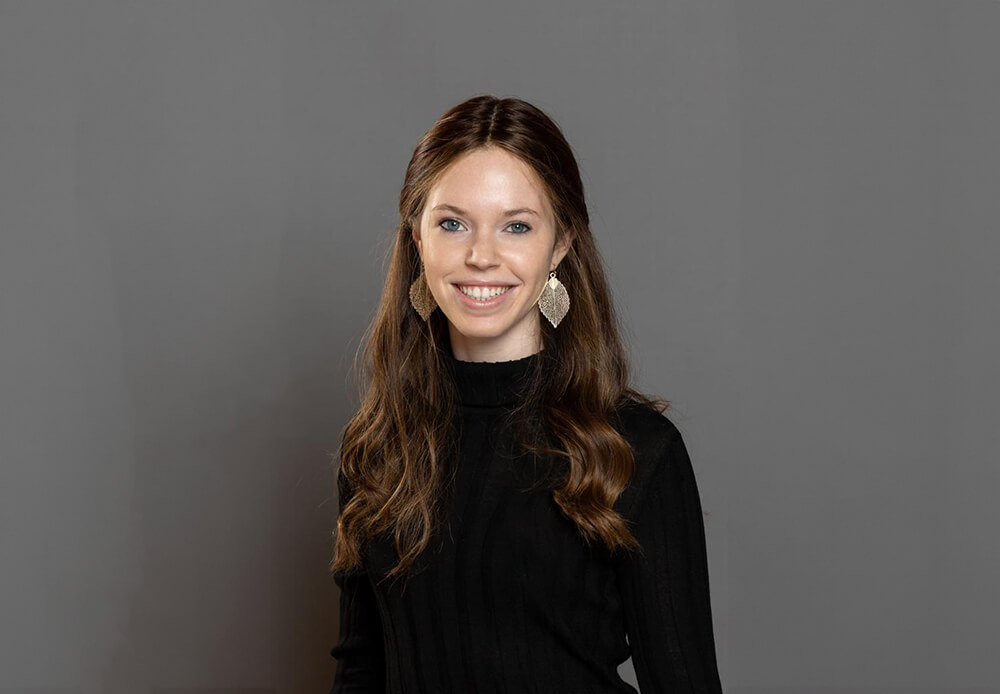Turning Literary Passion into a Communications Career
Lander College for Women Alum Produces Content for Business, Tech, Healthcare Clients While Growing her Own Career as a Writer

Hannah Rubin, Lander College for Women (LCW) ’20, is a senior content producer at Elland Road Partners and a freelance writer. A math major who switched to English literature, Hannah talks about how she got started in her line of work, and what it takes to succeed as a writer and content producer. She also shares her tips for balancing multiple personal and professional roles, and gives advice to current students.
How did you choose communications and content marketing as your career path?
I started out as a math major, planning to become an actuary. But I’d always adored writing, and midway through my first semester, I made the (arguably reckless) decision of switching to English literature. I wanted to see if my literary passions might grow into a career. And that was the beginning of my journey toward communications and content marketing. The firm I work most closely with, Elland Road Partners, does all kinds of communications work.
What skills and strengths do people need to excel in this field?
Some obvious ones—writing, research, interviewing, project management—and some less obvious ones: empathy, so you can truly understand your target audience, and adaptability, as you often need to learn quickly about new topics, then write about them convincingly.
Can you describe your career journey, from internship to first job and current role?
It was uncommonly linear: While at Touro, Career Services connected me to Elland Road Partners for an informational interview. They hired me as an intern, and I’ve worked for them in roles of increasing responsibility ever since! I’m technically an independent contractor, which gives me flexibility over where, when, and how I work, but the firm is committed to my professional growth, which I would encourage everyone of all ages to seek in any work arrangement: employers, bosses and colleagues who will invest in you.
How did your Touro education propel your career?
Studying literature helped me develop skills I use regularly: critical thinking, communication and appreciation for the nuances of language.
My literature courses also taught me to ask deliberate and thoughtful questions. That’s a skill I call on often, since my job regularly requires me to become an “expert” in new subjects: from automation engineering and mobile healthcare to portfolio monitoring software, gravestone manufacturing and the innovative use of technology in insurance.
What is a day in the life like as a senior content producer at Elland Road Partners?
On a typical day, I might interview a subject matter expert, ideate with my team and draft content: web copy, white papers, ads, social media posts, case studies, emails or a chapter of a long-form guide.
You do freelance writing in addition to your primary role. How and why did you get started with that? How did you make connections at the magazines/news outlets?
I write a lot for work, but I grew interested in journalistic writing that would allow me to write more creatively about subjects I care about. My boss, who’s also my mentor and a veteran journalist, graciously guided me through the process, from pitching to securing interviews to self-editing. It’s been great fun.
As a working mom, how do you balance your many roles—wife, mother, communications professional, writer?
Definitely still figuring this one out! Setting priorities and being organized helps. Even more important is finding a workplace that’s supportive of family life and maintaining open communication with management.
I’ve also realized that you may want to do a lot of things—and over the course of a lifetime, hopefully you will—but as Ruth Bader Ginsberg said, "You can’t have it all, all at once. “
What advice do you have for other students seeking to enter this field?
Foster your sense of humility. If you work at a communications agency, you’ll need to regularly learn a great deal about things you never thought about (say, collections litigation). You can’t be afraid to say you don’t understand.
And if you want to be a writer generally, you have to be ready to hear "no." Rejection will happen. But if your idea is good, and you believe in it enough, it’s just a matter of finding the right home for it.

